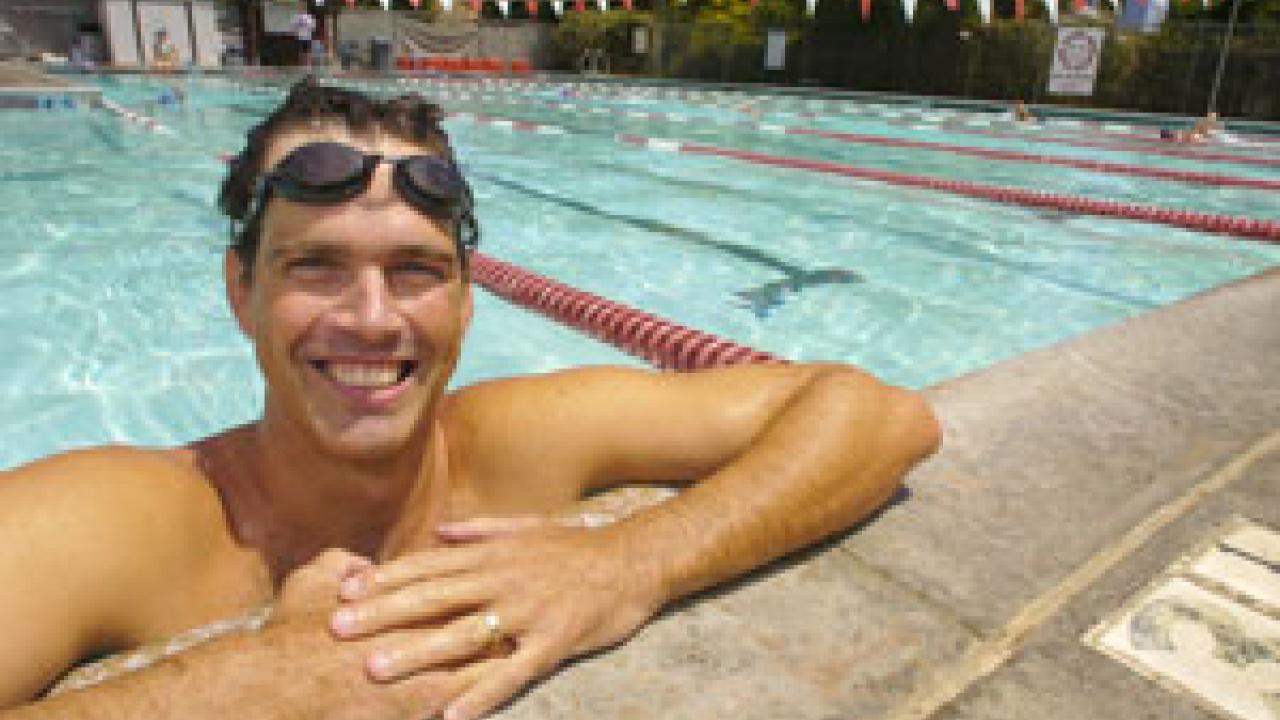Andy Hargadon knows the creative process inside and out. He was immersed in inventive companies such as IDEO and Apple Computer for years as a product design engineer, working on such projects as the Macintosh Duo and Powerbook laptop.
Now, as an associate professor in the UC Davis Graduate School of Management, Hargadon explores the notion of what it takes to be creative from a different angle.
Hargadon has conducted extensive research on the interplay between innovation and technology -- that is, how an organization develops and implements new ideas. Based on observations and interviews at companies such as IDEO, Hewlett-Packard, Design Continuum and Boeing, Hargadon developed the concept of technology brokering. He found that these firms and others act as technology brokers by learning about and borrowing concepts from other industries.
"Creativity is not a phenomenon on an individual level," Hargadon says. "Most innovations we look at are due mainly to the notion of recombining old ideas and resources."
Hargadon's scholarly articles on technology brokering and brainstorming have changed academic views on theories of innovation. His 2003 book, How Breakthroughs Happen: The Surprising Truth About How Companies Innovate, makes the point that most breakthroughs are based on ideas gleaned from creative individuals' experiences in different realms, industries and settings, and even hobbies.
Hargadon had been working at Apple for three years when he decided to make a career change. "I realized I liked the teaching and research as much as the actual work," he says.
He went back to Stanford, where he had previously earned his engineering degree, and earned a doctorate in organizational behavior. After spending three years on the faculty at the University of Florida, Hargadon moved to Davis in 2001.
"This is a great place to be for the work I do because so many of the faculty here are actively involved in research," he says. Hargadon acknowledged that the Graduate School of Management is smaller than some other top-rated business schools. But, he says, "Pound for pound, this group is as productive as any group in the country."
Hargadon also teaches two graduate classes -- Managing Innovation and Managing Technology -- and is director of technology management programs for the school, including the undergraduate technology management minor. In addition, he heads a class in which he works with MBA and other graduate students to examine the commercial potential of research coming out of UC Davis.
He says possibly his favorite campus involvement is with Big Bang! -- a business plan competition organized by students in the Graduate School of Management. Teams develop a business idea throughout the year and present it to a panel of judges in May. Hargadon is a faculty adviser for the annual event.
"It's really a course in entrepreneurship disguised as a competition," Hargadon says. "It's an opportunity to put faculty, staff and student creativity into a business context."
When he's not busy with his professional commitments or chasing his toddler daughter around the house, Hargadon enjoys swimming for Davis Aquatic Masters, a local swimming club with more than 450 members. He picked up the sport about 20 years ago, while he was rowing at Stanford.
"I started racing a single skull, which is a pretty skinny boat," says Hargadon. "I found that you fall in once in a while, so, if you don't know how to swim, you're in trouble. I decided I should learn how to swim."
What's the best thing about your job?
I have the opportunity to pick a problem that's interesting to me and explore it in depth. I get to talk to a lot of creative people and find out about their successes and failures and try to understand why they had those results. And I get to do that on a college campus, where curiosity and open minds are the norm. It's an ideal setting.
And the worst?
Too many ideas, books, projects, classes; and too little time. This job constantly tears you away from one thing or another.
Who inspires you?
There's no lack for inspiration around here -- in research, teaching and and even swimming -- but I've come to particularly admire people who can do more than one thing well. Who that is changes a couple of times each day.
Read any good books lately?
A Short History of Nearly Everything, by Bill Bryson. It's a fun book. It goes through the history of science and shows how many breakthrough findings in science were preceded by other people trying to say the same thing, just no one would listen to them.
If you weren't in this field, what would you do?
I'd probably go back to product design, which was my first love. Now I have to get my designing joys from building furniture around the house.
What's your guilty pleasure?
Buying the next great gadget, whether it's a computer, digital camera or camera phone.
If you became U.S. president, what would be your first action be?
An energy conservation act. If the country was crazy enough to elect me, they might be crazy enough to embrace conservation efforts. There's enough existing technology out there around fuel efficiency, insulation, transportation, lighting, to make a huge difference -- if we can just move it from where it's known to where it's not. •
Media Resources
Amy Agronis, Dateline, (530) 752-1932, abagronis@ucdavis.edu
